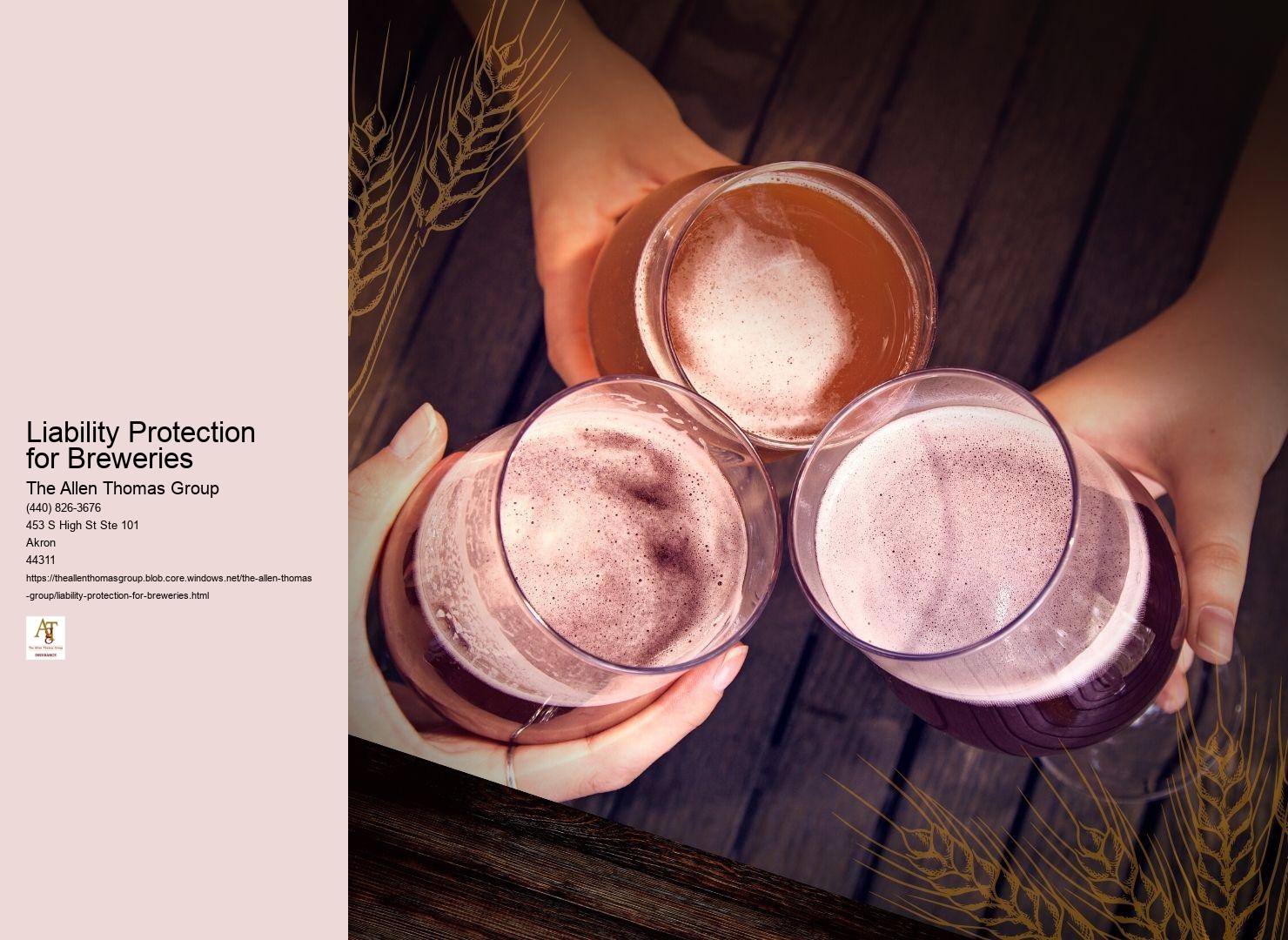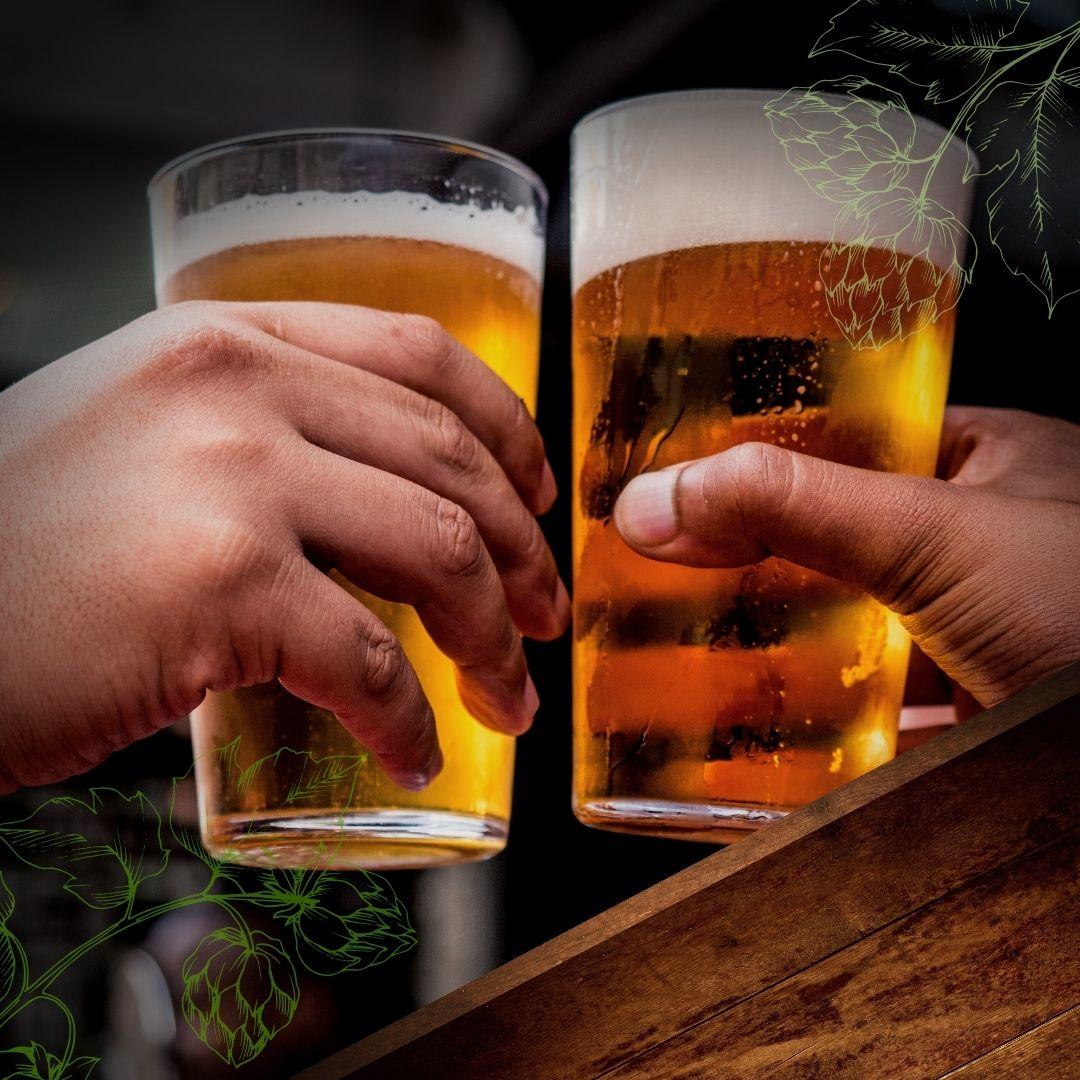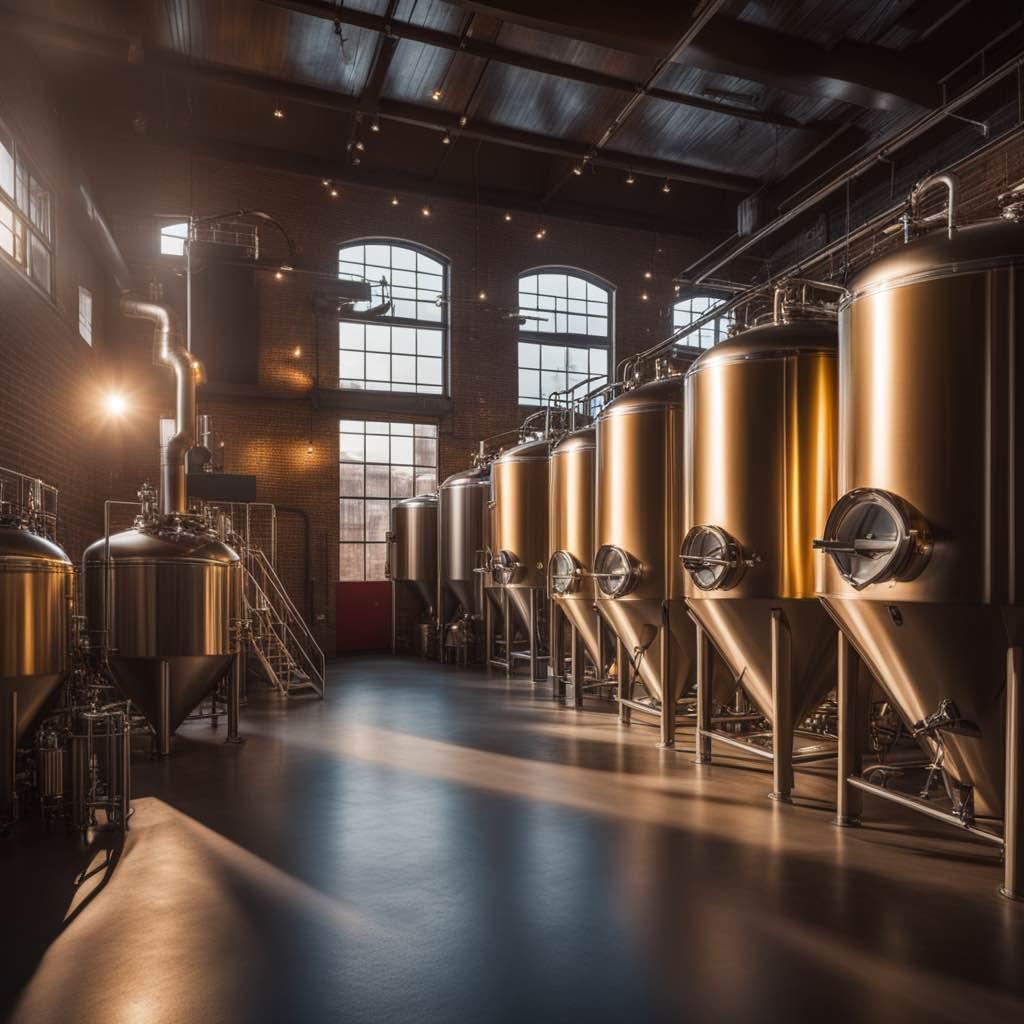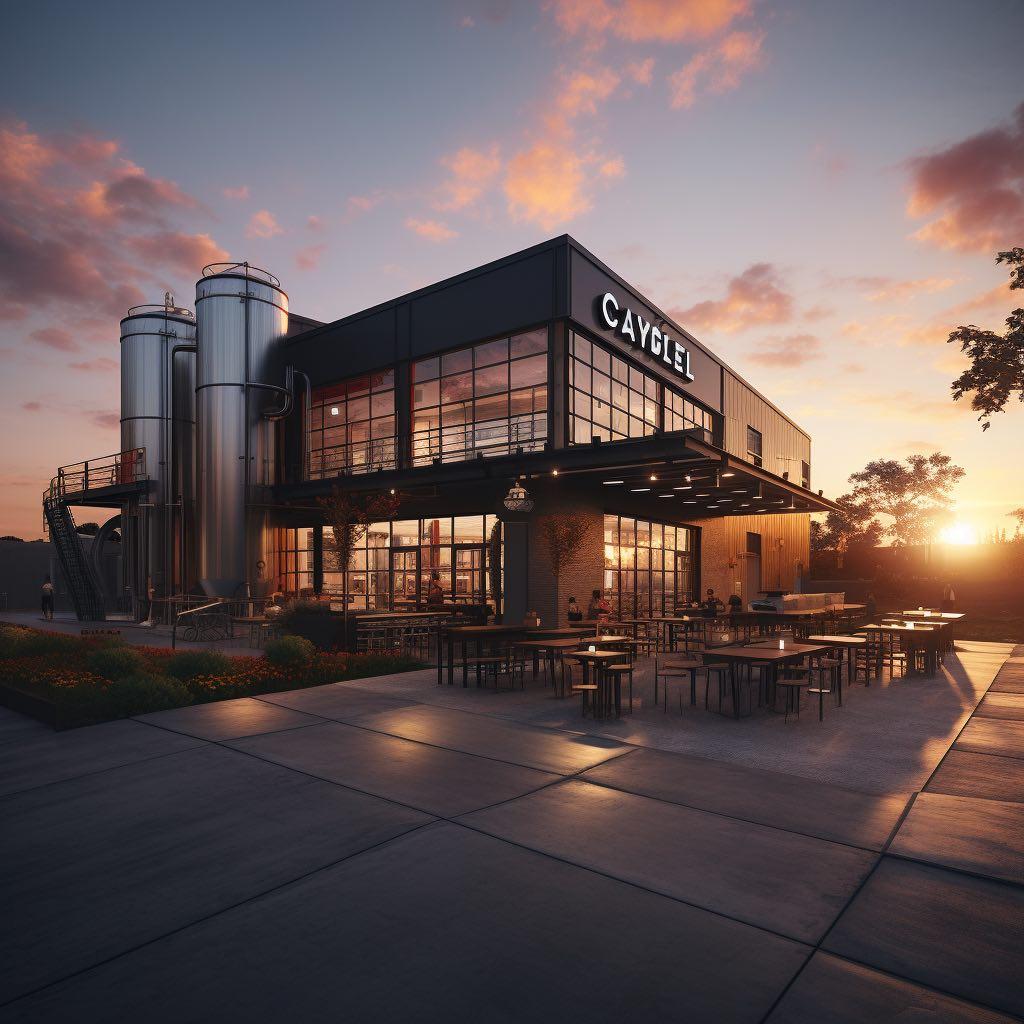

Liability protection is a critical safeguard for breweries, as it serves to shield the business and its owners from potential financial ruin that could arise from unforeseen incidents. Breweries, like any other businesses that manufacture consumable products, are susceptible to various risks including accidents on premises, product contamination, and legal disputes arising from alleged breaches of duty.
Brewing At its core, liability protection provides a buffer against claims that could otherwise financially cripple a business. The Allen Thomas Group . For instance, if a customer were to suffer an injury while visiting a brewery's taproom or during a guided tour of the facility – perhaps due to a slip and fall or contact with hot brewing equipment – the establishment could be held responsible for damages. Without adequate liability insurance in place, such an event might lead to out-of-pocket expenses for medical bills, legal fees, and compensation that can quickly accumulate beyond what most breweries can afford.
Moreover, breweries face specific hazards associated with the production of alcohol which includes the risk of serving underaged patrons inadvertently or over-serving alcohol leading to impaired judgment. These actions may result in serious accidents or even fatalities once those patrons leave the premises. Liability coverage helps manage these risks by providing defense and settlement costs in case of lawsuits alleging negligence or wrongdoing by the brewery.
Product-related issues constitute another area where liability protection is vital. The process of brewing involves numerous steps where things can go wrong: contamination can occur through unsanitary conditions; mislabeling might cause allergic reactions; and equipment failure could lead to inconsistency in taste or potentially harmful levels of substances within the beer itself. Should consumers experience health problems or dissatisfaction due to such issues and decide to seek compensation via legal channels, liability insurance would again be indispensable in covering related costs without draining company resources.
In addition to protecting against direct financial losses from claims made against them, having robust liability protection can also preserve a brewery's reputation by ensuring prompt and professional handling of any issues that do arise. This consideration is especially important given how consumer perceptions can make or break businesses in industries reliant on public favor.
Furthermore, many states require breweries to carry certain types of insurance as part of their licensing requirements. Thus compliance with local laws often necessitates obtaining appropriate coverage; operating without it not only exposes the brewery owner(s) personally but also puts at risk their ability to legally operate their business.
To sum up, liability protection functions as an essential suit of armor for breweries navigating an industry fraught with potential hazards both common across sectors and unique to alcohol production. It is an investment into peace of mind—a means by which brewers can focus on crafting quality beverages rather than worrying about financial devastation due to unexpected events that may never occur but could prove disastrous if unprepared for when they do happen.
Crafting the perfect pint is an art form, one that draws in beer aficionados from all corners. However, beyond the hops and malt lies a complex landscape of potential liabilities that breweries must navigate to protect their business and ensure its longevity.
One of the most immediate concerns for any brewery is product liability. Given that consumers ingest their products, breweries must vigilantly ensure quality control to prevent contamination or spoilage which could lead to illness. Even with stringent safety protocols, the risk of a batch going awry remains; if a customer falls ill after consuming their beer, the brewery could be held responsible.
Another area of exposure is premises liability. Breweries often double as social hubs, inviting customers into tasting rooms and on tours. Slippery floors, poorly maintained equipment, or inadequate safety signage can result in injuries to patrons or staff members, making liability insurance essential for covering medical bills or legal fees stemming from accidents on-site.
Employment practices liability cannot be overlooked either. As employers, breweries must adhere to labor laws and fair employment practices. Allegations of discrimination, wrongful termination, or harassment can not only tarnish a brewery's reputation but also lead to costly litigation.
Environmental liability is particularly pertinent for breweries due to their use of large quantities of water and generation of waste by-products like spent grains. Compliance with environmental regulations is crucial; failure to do so can incur government fines and remediation costs.
Lastly, intellectual property (IP) represents a unique form of liability for breweries who invest heavily in branding—crafting distinctive names for their beers and unique label art. Infringing on another entity's IP or falling victim to infringement yourself can engender expensive legal battles over trademarks and copyrights.
In conclusion, navigating these diverse liabilities requires diligence and foresight from brewers who aim not just to tantalize taste buds but also safeguard their enterprise against threats lurking behind each barrel and keg. Proactive measures coupled with comprehensive insurance coverage form the bulwark against these potential challenges—ensuring that the focus remains on brewing excellence rather than mitigating mishaps.

Crafting artisanal ales and lagers, breweries embody the fusion of creativity and business acumen.. As with any enterprise, craft breweries face inherent risks – from equipment damage to liability concerns.

Posted by on 2024-01-22
Crafting a perfect brew is an art form, but for breweries, it's not just about the taste and quality of their beer. It’s also crucial to navigate the complex web of potential legal issues that can bubble up in the course of doing business. Breweries must be vigilant in protecting themselves against common liabilities such as product liability, premises liability, and intellectual property disputes.
Let’s start with product liability. When a brewery produces beer, it implicitly assures customers that its products are safe to consume. Beer However, if a consumer believes they've been harmed by a defective or dangerous product, they may file a lawsuit against the brewery. Such claims can arise from contamination during the brewing process, faulty packaging leading to spoilage or injury, or even inadequate labeling that fails to warn about potential allergens. Breweries must uphold rigorous quality control standards and maintain comprehensive insurance policies to mitigate these risks.
Premises liability is another concern for breweries, especially those with taprooms or venues where patrons gather. If someone is injured on the brewery's property—perhaps tripping over equipment during a tour or slipping on spilled liquid—the establishment could be held responsible for damages resulting from negligence in maintaining a safe environment. To guard against such scenarios, breweries need to implement strict safety protocols and ensure public areas are well-maintained and free of hazards.
Lastly, intellectual property disputes can ferment trouble for unsuspecting brewers. The craft beer industry thrives on creativity and uniqueness—from distinctive beer names to creative labels and branding strategies—but this can lead to clashes over trademarks and copyrights if breweries aren't careful. Accidental infringement on another company's established brand identity could result in costly litigation. Proactive measures like thorough trademark searches before launching new beers or branding elements are essential steps toward preventing IP entanglements.
In conclusion, while brewing excellent beer might be at the heart of every brewery’s mission, being proactive about minimizing legal risks is equally important for sustaining success. By understanding and addressing concerns related to product liability, premises liability, and intellectual property disputes proactively, breweries can pour their energy into what they do best: delighting customers with exceptional brews without fear of getting tapped out by lawsuits.

In the unique and often bustling world of craft breweries, proprietors must navigate a frothy mixture of risks and liabilities that come with brewing, serving, and distributing alcoholic beverages. Comprehensive insurance coverage is not just advisable; it's essential for safeguarding against potential financial disasters that could ferment without warning.
**General Liability Insurance**: This foundational policy serves as the bedrock of risk management for breweries. It provides broad protection against claims of bodily injury or property damage that might occur on premises or as a result of operations. For instance, should a customer slip on a wet floor or have an adverse reaction to an ingredient in your beer, general liability would help cover medical expenses and legal fees.
**Liquor Liability Insurance**: Given that breweries are in the business of alcohol production and sales, liquor liability cannot be overlooked. This specialized form addresses risks specifically associated with the sale and consumption of alcohol — like incidents stemming from overserving a patron. Considering the potential severity of claims related to alcohol-induced accidents or altercations, this coverage is critical.
**Product Liability Insurance**: Breweries take pride in their concoctions but despite stringent quality control measures, there's always a chance something could go awry. Product liability protects against claims arising from damages caused by your beer — such as contamination or spoilage — ensuring that one batch gone bad doesn't sour your entire operation.
**Property Insurance**: Protecting physical assets is straightforward with property insurance. This covers brewery equipment, buildings, inventory, and other tangible assets against fire, theft, vandalism or natural disasters. A tailored property policy can keep you from stewing over unexpected repair or replacement costs.
**Business Interruption Insurance**: When unforeseen events cause a temporary shutdown — say a power outage spoils your inventory—business interruption steps in to assist with ongoing expenses like rent or payroll until you're back up and brewing again.
**Workers’ Compensation Insurance**: Employees are instrumental in crafting each barrel of beer; therefore their well-being is paramount. Workers' comp provides benefits to employees who suffer work-related injuries or illnesses—even those repetitive motion injuries common among brewers stirring large vats daily.
To wrap up this pint-sized essay: Ensuring comprehensive coverage through key insurance policies isn’t just about fulfilling legal requirements; it's about peace of mind. With proper liability protection snugly capped onto your brewery’s operations like a well-sealed growler lid, you can focus on what you do best – crafting exceptional beers – while leaving worries about potential liabilities behind at the bar.

Running a brewery involves numerous risks, from accidents on the premises to unforeseen events that can disrupt operations. To mitigate these risks, it's essential for brewery owners to understand and secure appropriate insurance coverage. Three key types of insurance are general liability insurance, liquor liability insurance, and business interruption insurance.
General liability insurance provides broad protection against common risks faced by most businesses, including breweries. This type of policy typically covers bodily injury or property damage claims made by third parties such as customers or vendors who may be injured on the brewery premises or by the company's products. For example, if a visitor slips and falls while touring the brewery, general liability could help cover their medical expenses and any legal fees if they sue.
Liquor liability insurance is especially relevant for breweries since they produce and serve alcoholic beverages. This specialized form of coverage protects against claims arising from damages or injuries caused by intoxicated patrons. If someone has too much to drink at your establishment and then causes an accident or gets into a fight resulting in injuries or damages, liquor liability insurance would help cover legal costs and settlements.
Business interruption insurance is designed to protect businesses from losses that occur when they must temporarily cease operations due to covered events like natural disasters, fires, or major equipment breakdowns. This type of policy helps compensate for lost income during downtime and can assist with ongoing expenses such as rent or payroll until the business is able to reopen.
In conclusion, understanding these distinct forms of coverage – general liability for everyday incidents, liquor liability tailored towards alcohol-related risks, and business interruption for operational disruptions – is crucial in safeguarding a brewery’s financial health against potential liabilities. By weaving a safety net with these insurances in place, brewery owners can focus more on crafting quality brews rather than worrying about the financial impact of unexpected mishaps.
In the bustling world of craft brewing, where tanks hiss and glasses clink, an often-overlooked aspect is the stringent adherence to safety protocols. Beyond crafting a perfect pint, breweries must prioritize minimizing risks to protect both patrons and employees and ultimately safeguard their business from potential liabilities.
To begin with, implementing robust training programs for staff is imperative. Workers should be well-versed in handling equipment safely, understanding the chemistry of brewing that could pose hazards, and recognizing emergency procedures. Ignorance in this realm can lead to accidents which might not only injure individuals but also strike at the heart of the brewery's reputation and financial stability.
Regular maintenance checks are another vital component. Brewing equipment operates under high pressure and involves extreme temperatures; thus, ensuring machinery functions correctly helps prevent malfunctions that could escalate into dangerous situations or costly downtime. This proactive approach demonstrates due diligence—a shield against liability claims arising from negligence.
Furthermore, clear signage plays a significant role in maintaining a safe environment. Warning labels near hazardous zones inform both staff and visitors of potential dangers—like wet floors or low ceilings—and guide them towards safer practices within the facility's premises. Such cautionary measures illustrate a commitment to safety that can mitigate legal repercussions following any incidents.
It’s also essential for breweries to stay abreast of industry standards and regulations set forth by governmental agencies such as OSHA (Occupational Safety and Health Administration) in the United States. Compliance with these guidelines not only ensures worker protection but also acts as a testament to responsible business operations when facing scrutiny after an unfortunate event.
Lastly, obtaining comprehensive insurance coverage is crucial for liability protection. While prevention is key, it’s impractical to assume all risks can be eliminated. Insurance provides a financial safety net if worst comes to worst—covering medical costs for injuries or damages resulting from unforeseen accidents within the brewery.
In conclusion, implementing safety protocols effectively minimizes risk within breweries—an endeavor that requires continuous effort and vigilance yet yields dividends by protecting people's wellbeing and shielding businesses from legal entanglements. A culture centered around safety is not just about regulatory compliance; it reflects an ethos of care that resonates with customers and contributes fundamentally to any brewery's lasting success.

Creating an atmosphere of safety within the brewing industry is not merely a regulatory requirement but a fundamental component to safeguarding both patrons and employees while simultaneously mitigating risk. Establishing this culture involves fostering awareness, education, and proactive measures that collectively contribute to preventing accidents.
A brewery thrives on its ability to deliver quality products without compromise. Hence, meticulous attention to detail in every facet of operation – from sourcing ingredients to the bottling process – is essential. By ingraining safety protocols into daily routines, breweries ensure that staff members are well-versed in handling equipment and substances correctly and responsibly. This reduces the likelihood of mishaps that could lead to injuries or contamination issues.
Education plays a pivotal role in cultivating a safety-first mindset among workers. Regular training sessions should be mandatory, focusing on proper procedures for operating machinery, handling chemicals used in the brewing process, and maintaining clean working environments. Knowledge empowers employees to identify potential hazards before they escalate into incidents, thereby preempting possible liabilities.
Moreover, open communication channels encourage workers to report unsafe conditions or practices immediately. When employees feel confident that their concerns will be addressed without repercussions, they become active participants in maintaining a secure workplace.
Investing in high-quality equipment with built-in safety features can also lower the chances of operational failures leading to accidents. Routine maintenance checks are critical; ensuring all apparatus function optimally minimizes unexpected malfunctions that could have dire consequences.
Ultimately, fostering a safety culture benefits all stakeholders involved in the brewery business. From protecting workers' wellbeing and upholding consumer trust to shielding the brand from legal troubles due to negligence claims – these concerted efforts solidify a brewery’s reputation as responsible and reliable.
In conclusion, by engraining safety values deeply into their core operations, breweries not only protect individuals but also fortify their standing against potential liabilities. The outcome is an environment where productivity blossoms alongside well-being—a win-win for both business sustainability and community welfare.
Crafting a smooth, flavorful brew is not the only challenge facing breweries; legal compliance represents an equally crucial aspect of their operations. Breweries must navigate a complex web of state and federal regulations to shield themselves from potential liabilities. Ignorance or disregard for these laws can ferment serious trouble, ranging from hefty fines to operational shutdowns.
At the core of liability protection lies the necessity for meticulous adherence to licensing requirements. Obtaining and maintaining proper licenses is not merely a bureaucratic formality; it's a safeguard against unauthorized production allegations, which could sour a brewery's reputation and financial stability. State agencies typically oversee this aspect, with each having distinct prerequisites that breweries must satisfy.
Moreover, quality control is pivotal in dodging product liability issues. Serving subpar beer or, worse, beverages contaminated with harmful substances can poison both patrons' health and the brewery's vitality. Implementing rigorous quality assurance protocols ensures that every pint poured meets high safety standards, thereby mitigating the risk of costly litigation that could drain resources like an uncapped keg.
Additionally, breweries must be vigilant about abiding by marketing regulations. Deceptive advertising or unapproved label claims can attract the ire of regulatory bodies such as the Alcohol and Tobacco Tax and Trade Bureau (TTB). These breaches not only tarnish brand image but also invite legal challenges that could leave brewers crying over spilt beer.
Furthermore, attention to environmental regulations is indispensable for sustainable operation. Disposing waste improperly or failing to comply with water usage standards can ferment public outcry and trigger sanctions from environmental protection agencies. By embracing eco-friendly practices, breweries don't just preserve nature; they fortify their defense against damaging lawsuits.
In essence, liability protection for breweries is akin to brewing itself: it requires patience, precision, and unwavering commitment to excellence. By fully complying with state and federal mandates—covering everything from licenses to labels—breweries can minimize legal exposure while continuing to craft beers that resonate with aficionados across the nation. Compliance isn't just about following rules; it's about cultivating an environment where passion for brewing can flourish without fear of legal hangovers.
In the bustling world of craft breweries, where creativity flows as freely as the beer in the taps, there exists a web of regulations and standards that can easily ensnare the unwary entrepreneur. Compliance with alcohol regulations, employment laws, and health & safety standards is not just an onerous duty; it's an essential shield against the multifaceted threats of liability.
Venturing into this landscape without a deep appreciation for these legal guardrails is akin to navigating treacherous waters without a map. Alcohol regulations are particularly stringent due to the potential impact on public health and welfare. These rules dictate everything from licensing, labeling, advertising, distribution, and sales hours to serving sizes and age restrictions. A misstep here could lead to severe penalties including fines, suspension of licenses, or even criminal charges.
Employment laws represent another minefield for breweries. The joyous spirit that suffuses many craft beer establishments must be underpinned by scrupulous adherence to fair labor practices. This includes ensuring proper wages, overtime compensation, nondiscrimination policies, and maintaining a workplace free from harassment. Violations not only damage morale but also attract lawsuits and regulatory action that can tarnish a brand's reputation and drain its financial resources.
The taproom may brim with laughter and camaraderie but lurking behind every pint is an array of health & safety considerations which if ignored could ferment into disaster. Breweries must rigorously comply with food safety protocols while also maintaining safe working conditions within what is essentially an industrial environment replete with potential hazards like heavy equipment, hot surfaces, chemicals used in brewing and cleaning processes.
Failing to uphold these standards exposes breweries to substantial risk - personal injury claims from customers or employees can lead to costly litigation or settlements. Moreover, breaches in health & safety can invite scrutiny from Occupational Safety and Health Administration (OSHA) or similar bodies leading to punitive actions.
Thus lies the paradox – breweries must balance their freewheeling nature with a meticulous commitment to compliance; failure in this balance does not merely invite risk - it pours it generously into the chalice of enterprise vulnerability.
In crafting this shield of compliance breweries should invest in knowledgeable counsel familiar with industry-specific risks; train their staff rigorously; institute robust audit procedures; maintain comprehensive insurance coverage; foster a culture where compliance is everyone’s responsibility – all steps which collectively fortify against liabilities large enough to capsize any business no matter how buoyant its beginnings might seem.
Ultimately insight into compliance is less about legalistic drudgery than protection: safeguarding patrons employees community at large whilst anchoring brewery's longevity success amidst tumultuous seas commerce uncertainty.
Crafting robust crisis management strategies to navigate liability claims is crucial for breweries, whose reputation and financial stability can be jeopardized by such allegations. The intricacies of liability protection require a multi-faceted approach that mitigates risks while maintaining the brand's integrity.
**Preparation and Prevention**: Foremost, preparation is indispensable. Breweries must rigorously adhere to health and safety regulations, ensuring their products are consistently of high quality and safe for consumption. This includes meticulous ingredient sourcing, brewing processes, and packaging. Moreover, staff training in proper operational procedures minimizes human error potentiality.
**Insurance Coverage**: Securing comprehensive insurance coverage forms the bulwark of liability protection. General liability insurance coupled with liquor liability policies offers a safety net against claims related to product defects or incidents stemming from alcohol consumption.
**Legal Team Engagement**: An adept legal team specializing in food and beverage law is an asset when confronting liability claims. Their expertise allows for prompt identification of potential liabilities and crafting defense strategies aligned with current legislation.
**Communication Strategy**: Transparent communication during a crisis fosters trust among consumers. A well-conceived plan should outline how to inform stakeholders without admitting fault prematurely or speculating about causes before thorough investigations conclude.
**Customer Relations Management**: Maintaining strong relationships with customers through active engagement on social media platforms can help mitigate the fallout from negative publicity associated with liability claims.
In conclusion, breweries must adopt comprehensive crisis management strategies encompassing prevention measures, appropriate insurance coverage, expert legal counsel, transparent communications plans, and proactive customer relations to effectively shield themselves against the impact of liability claims.
Running a brewery entails not only the craft of beer-making but also navigating the intricacies of liability. Effective incident management is crucial to mitigate potential claims. Here's an essay exploring strategies for handling such situations.
Owning and operating a brewery can be as complex as it is rewarding, with various risks that require careful attention. It’s imperative for brewery owners to establish proactive measures to prevent incidents that could lead to liability claims and to manage those incidents effectively should they arise.
Firstly, rigorous adherence to safety protocols cannot be overstated. Breweries should conduct regular training sessions ensuring all employees are conversant with operational safety standards and emergency procedures. This includes proper handling of brewing equipment, understanding of material safety data sheets (MSDS) for chemicals used in the brewing process, and compliance with health codes.
Another critical step is maintaining meticulous records. Documenting processes and incidents thoroughly provides valuable information that can be analyzed to prevent future occurrences and also serves as evidence that may absolve or mitigate responsibility in case of a claim.
In addition, breweries must ensure their premises are secure from hazards that could harm patrons or staff members. Regular inspections are essential; identifying potential risks like wet floors, obstructed pathways, or faulty equipment can help avoid accidents that might result in injuries and subsequent liability claims.
Should an incident occur, prompt action is vital. The situation should be assessed quickly yet carefully to provide immediate assistance to any injured parties while also securing the scene to prevent further issues. Communication plays a key role post-incident; both insurance providers and legal counsel should be contacted without delay.
Moreover, being transparent with affected individuals about steps being taken can foster goodwill even amid unfortunate circumstances. Addressing concerns directly instead of allowing them to escalate through neglect or poor communication is often more effective in mitigating reputational damage which could exacerbate liability issues.
Furthermore, breweries would do well by obtaining comprehensive insurance coverage tailored specifically for their industry needs—protecting against property damage, personal injury lawsuits, product recalls due to contamination, and other potential liabilities inherent in the business of brewing.
Lastly, learning from every incident is pivotal for continuous improvement. Implement changes based on insights gained from past experiences; this demonstrates commitment both legally and ethically towards providing a safe environment—a brewer’s ounce of prevention worth far more than a pint of cure when it comes to avoiding liability claims.
In summary, breweries must actively engage in safety practices, thorough documentation, regular risk assessments on-premises maintenance checks—and handle incidents swiftly if they occur—while maintaining open channels of communication throughout the process.
The role of legal counsel in safeguarding a brewery's interests is paramount. Breweries, like any business entity, face myriad potential liabilities that could stem from various facets of their operations—ranging from employee safety to intellectual property rights to compliance with alcohol production regulations.
Legal counsel provides expertise in navigating the complex web of laws and regulations that govern the brewing industry. They ensure adherence to federal and state guidelines pertaining to the manufacturing, distribution, and sale of alcoholic beverages. This includes understanding labeling requirements, licensing procedures, and tax obligations.
Navigating the complex landscape of brewery law can be a daunting task for brewery owners and operators. It is essential to work closely with attorneys who specialize in this niche legal area to ensure both proactive measures are taken and robust defense strategies are in place against potential claims.
When seeking advice from a brewery law specialist, it's important to prioritize an attorney's experience with alcohol regulatory compliance, intellectual property, employment laws, and contract negotiations related to the brewing industry. These professionals offer invaluable guidance on how to protect your assets and mitigate risks that are unique to the craft beer sector.
One key aspect of liability protection involves understanding local, state, and federal regulations that govern the production and sale of alcoholic beverages. This includes obtaining proper licenses, adhering to labeling requirements, and following health and safety standards. A knowledgeable attorney will advise you on keeping your operations compliant with these rules, thus reducing the likelihood of government-imposed penalties or legal actions from third parties.
Additionally, breweries must be aware of their exposure to tort claims such as personal injury or product liability cases. Lawyers specializing in brewery law can assist in implementing risk management practices like regular facility inspections, rigorous quality control procedures for products, staff training programs focusing on responsible serving practices, and having clear policies regarding patron conduct within taprooms or other premises owned by the brewery.
Intellectual property (IP) protection is another crucial element where legal expertise comes into play. Breweries often invest significant resources into branding — including logos, product names, recipes — which require safeguarding through trademarks or copyrights. Attorneys help ensure that these IP assets are duly registered and defended against infringement by competitors or counterfeiters.
In terms of contractual relationships — whether with suppliers, distributors, employees or co-branding partners — having an attorney draft clear agreements can prevent misunderstandings that might lead to disputes. Such contracts should address issues like exclusivity arrangements, termination clauses, indemnity provisions among others while reflecting best practices within industry standards.
Finally yet importantly if faced with a claim defense counsel specializing in brewery law will provide representation tailored towards minimizing financial impact while aiming preserving your business reputation Operational decisions made without considering potential liabilities could jeopardize not just profits but also long-term viability Hence engaging competent legal advisors before problems arise constitutes wise investment for any serious player within burgeoning world craft brewing
Brewery owners should remember that periodic check-ins with their lawyers even during seemingly calm periods can preemptively identify areas of concern allowing adjustments before they escalate into larger issues Proactive collaboration between brewers specialized attorneys creates foundational strength upon which successful sustainable businesses built
In the competitive and dynamic world of craft brewing, the importance of implementing robust liability protection strategies cannot be overstated. As purveyors of alcoholic beverages, breweries face a unique array of risks that extend from production mishaps to customer incidents. The potential for costly litigation stemming from any number of unforeseen events necessitates that breweries take a proactive stance in managing risk through comprehensive insurance coverage and diligent operational practices.
Firstly, consider the inherent dangers associated with the brewing process itself—equipment malfunctions, ingredient contamination, or workplace accidents can not only disrupt operations but also pose significant financial threats if proper safeguards are not in place. A brewery's failure to secure adequate product liability insurance could spell disaster should a consumer fall ill or sustain injury due to a defect in the beer.
Beyond production-related risks, there's also the public-facing aspect of brewery operations. Taprooms and brewpubs invite customers into an environment where alcohol consumption is central. This scenario heightens exposure to liabilities like overserving patrons who may subsequently cause harm or incur injury. Thus, it is critical for breweries to have liquor liability coverage as part of their insurance portfolio to protect against claims resulting from such situations.
Moreover, breweries must navigate a complex regulatory landscape where non-compliance with local, state, or federal laws can lead to severe penalties and jeopardize business continuity. Addressing this challenge requires not just legal expertise but also appropriate coverage against regulatory actions that might otherwise financially cripple an establishment.
Additionally, given today's digital age where brand reputation can be impacted by online reviews and social media discourse, breweries must consider protections against defamation or slander that could erode their market position and customer base.
In conclusion, it is evident that operating without comprehensive liability protection is akin to sailing stormy seas without a lifejacket—a perilous endeavor indeed. Breweries must acknowledge the multifaceted nature of their industry's risks and adopt thorough liability strategies accordingly. Doing so enables them not just to weather potential storms but also ensures they can focus on what they do best: crafting exceptional beers and cultivating memorable experiences for beer enthusiasts everywhere.
